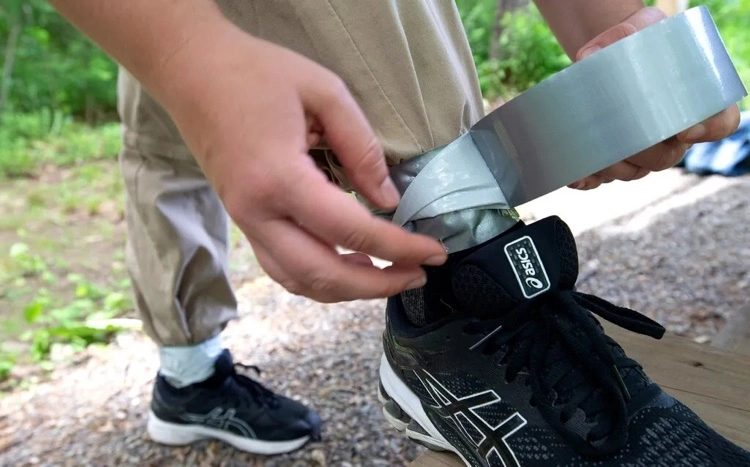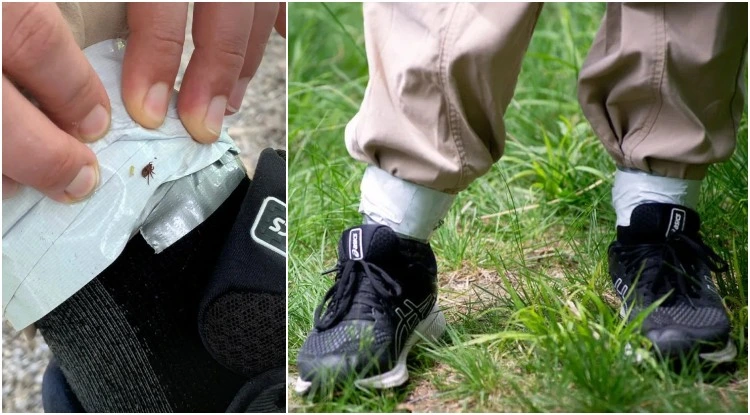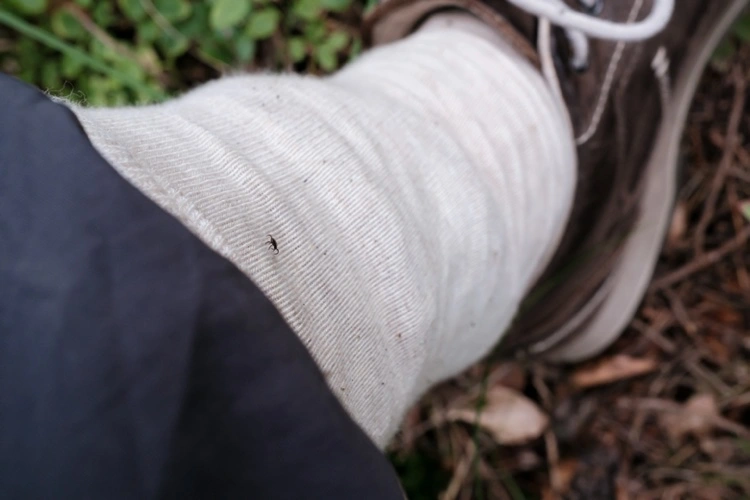Longer days and more and more hours of sunshine – the hobby gardeners are drawn back outside into the garden. There is already a lot to do there, from mowing the lawn and pulling weeds to planting vegetables and flowers. But there is already a danger lurking outside – the ticks. The little bloodsuckers like it damp and can often be found in the grass, in bushes and any vegetation close to the ground, especially after rain or morning dew. The tick bite itself is not dangerous, but the arachnids transmit diseases such as TBE and Lyme disease and it is therefore important that you protect yourself appropriately. Today we reveal how to protect yourself from ticks in the garden with some clever tips and tricks.
What can you do against ticks in the garden?
Perhaps you are already wondering whether and how you can make your garden tick-free. On the one hand, there are many chemical agents that you can use to treat your green areas against the pests. But if you don’t want to use chemicals in the garden, you can also consider some of the following tips.
- Mow the lawn regularly in spring and summer: Tall grasses are a favorite habitat for ticks, so you can keep them off your lawns by always keeping the lawn short.
- Limit wild growth of plants: The wildflower garden is on the rise, but overgrown shrubs cast shade and make your garden tick-friendly. Prune plants regularly and don’t let your garden get too wild, otherwise you create the ideal living conditions for the uninvited guests.
- Clean up the garden: Are there still leaves from winter in your garden? The pile of leaves is the ideal location for the tick nest, so it should be removed by spring at the latest or moved to a secluded spot in the garden.
Are there ticks in my garden? a test

Ticks are small animals that are difficult to spot in your garden. If you are not sure whether they are currently in your outdoor area, a simple test will help. Take a stick and attach a white cloth to it. Then wipe the cloth along the places where ticks are usually found, such as grass, bushes or damp lawns. Then take a closer look at the cloth: the ticks look like small black dots, and from a short distance you can recognize them by their eight legs.
This is how you can protect yourself
When it comes to mosquitoes, ticks or fleas, repellents from the pharmacy are the first thing that comes to mind for many. While these have been shown to be effective, they have a limited effect and you have to reapply them repeatedly, about every 30 to 60 minutes, or they will wear off. Also, these repellents contain chemical ingredients like DEET and Icaridin, which have an unpleasant odor and can even cause allergies. Therefore, we recommend using these tick repellents as a last resort, and using natural alternatives whenever possible.
Important: If you have spotted ticks in your garden, be sure to check your skin after each time you are outside, even if you have applied a repellent. The little animals primarily choose thin and warm skin areas, such as the hollows of the knees, armpits, head, throat, nape of the neck and genital area.
A clever duct tape trick

Gardening can’t wait and even ticks shouldn’t stop you from taking good care of your plants and lawns. Luckily, there’s a simple trick you can use when gardening to protect yourself from the bloodsuckers. All you need is a piece of wide tape. That’s how it’s done:
- Wear long pants and long socks.
- Tuck pants into socks so no part of your skin is showing.
- Wrap a piece of tape around the ankles, sticky side out, before heading out into the garden.
- Before you get back indoors, check the tape for trapped ticks and then discard it.

Proper clothing is a must
If the ticks don’t have access to your skin, they won’t be able to bite you. Appropriate clothing is usually sufficient protection against ticks when working in the garden. Long pants and sleeves are a must, shoes should fit well and not leave any skin exposed. The color of the clothes also plays a role – wear light and smooth fabrics, for example, on which the black crawling animals can easily be seen or cannot crawl at all.

Use well-known home remedies against ticks in the garden
Home remedies are a good alternative to chemical repellents because they do no harm and should have a similar effect. Here are the top three to use when repelling ticks.
- Coconut oil against ticks: We like this tick repellent best because it has a pleasant scent and is also good for the skin. Coconut oil contains lauric acid, which studies have shown can deter ticks. So apply coconut oil to your legs and arms to protect yourself.
- Keep the animals away with black cumin oil: Although its effect has not yet been scientifically proven, black cumin oil should also repel ticks. It is often used on animals such as dogs to protect against ticks.
- Drive away ticks with garlic: Ticks are bloodsuckers, so it’s only logical that they don’t like garlic, right? Consuming garlic is also said to reduce the chance of a tick bite.
Can you get vaccinated?
You cannot vaccinate yourself against ticks, but you can vaccinate against one of the diseases they transmit. There is a vaccination against the viral disease TBE (stands for tick-borne encephalitis), which is also available for children from the age of 1. Lyme disease, the other dangerous disease that ticks exaggerate, is a bacterial disease for which, unfortunately, there is no vaccine.
Continue reading: How should you treat a tick bite?